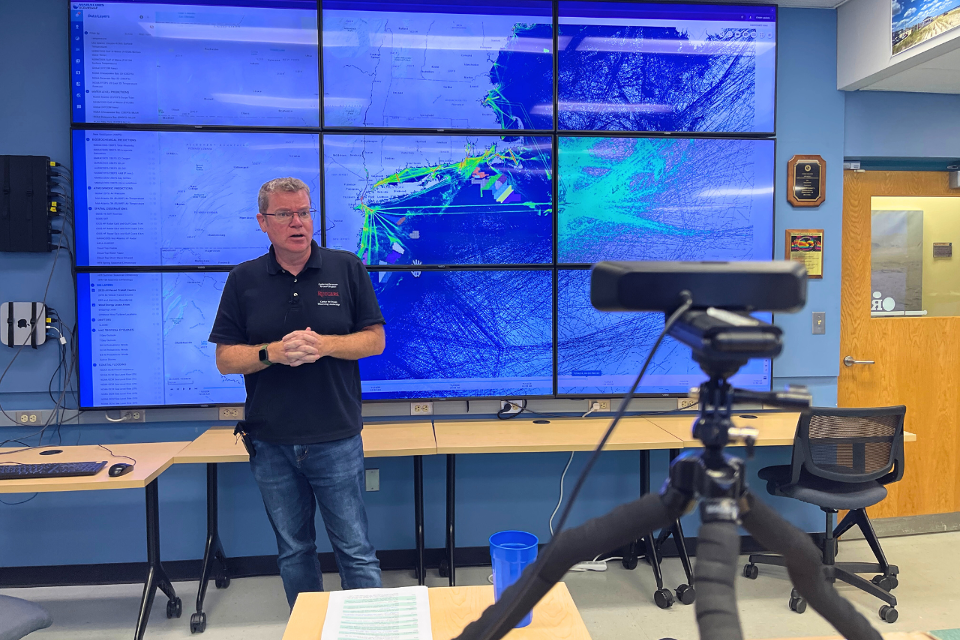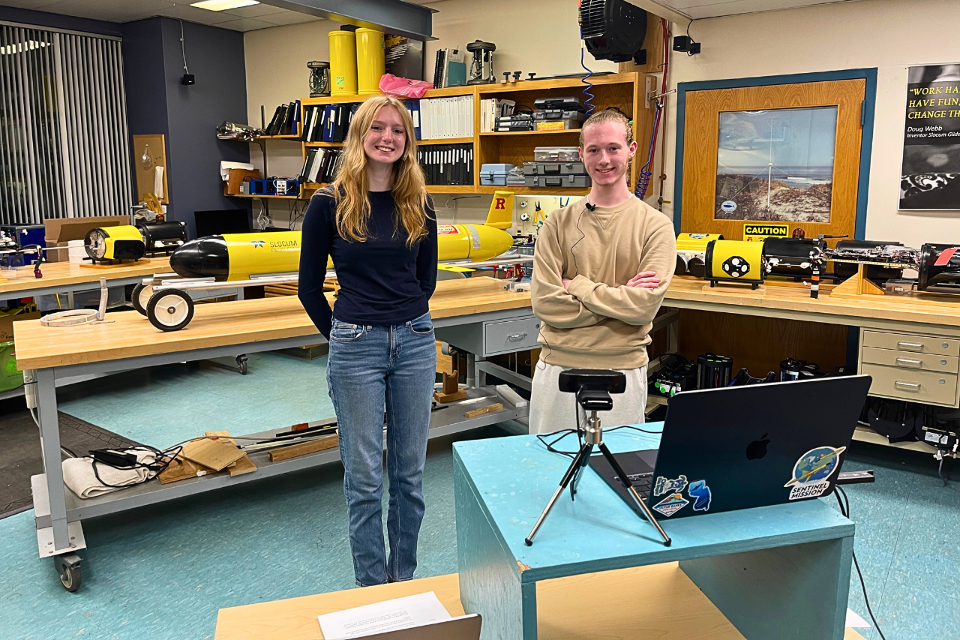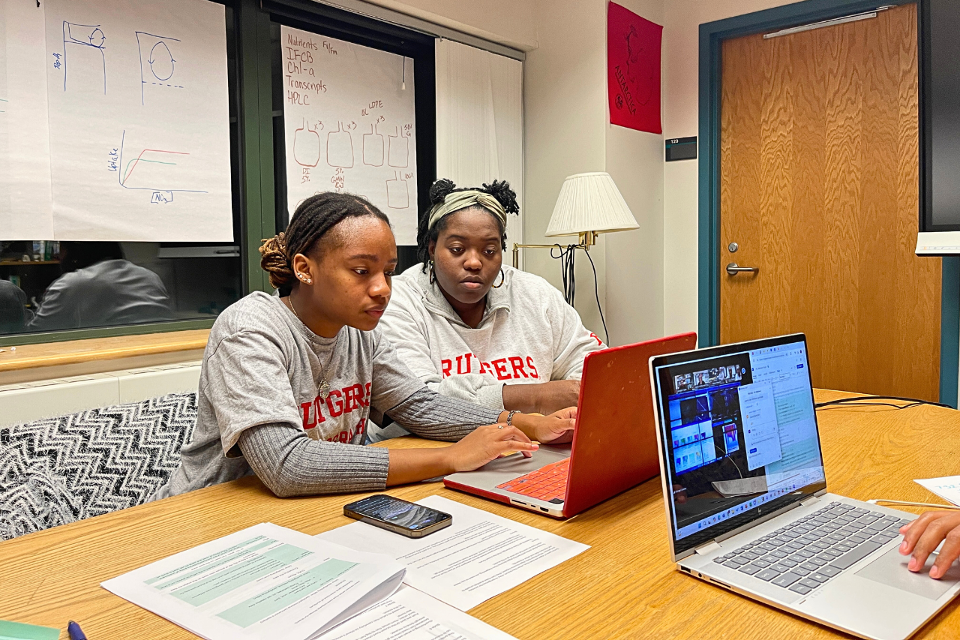
Michael Crowley, technical director of Rutgers’ Center for Ocean Observing Leadership, answers questions on ocean-related challenges, using real-time data the DMCS monitors 24/7 from the COOL classroom. Courtesy of the Department of Marine and Coastal Sciences.
More than 265 students from across the U.S. dove into the mysteries of the ocean and explored how science, technology, engineering, and mathematics (STEM) can address global environmental challenges during a virtual event hosted by Rutgers University’s Department of Marine and Coastal Sciences (DMCS). The students from the FIRST LEGO League, participated as part of their preparation for this year’s robotics competition.
They learned from Rutgers researchers about ocean exploration, innovative technologies, and critical issues affecting marine ecosystems. Attendees in New Jersey, Pennsylvania, California, and beyond asked more than 20 questions on topics ranging from wave energy to offshore wind power. One curious third grader from New Jersey wondered, “If marine biologists use exploration vehicles, how are these vehicles designed to withstand extreme pressure in the deep ocean?”
Tackling Global Ocean Challenges

DMCS undergraduates Helena Messihi and Aiden Blanos took the FIRST LEGO League teams on a virtual tour of the department’s underwater glider lab, explaining the engineering and science behind piloting these machines effectively. Courtesy of the Department of Marine and Coastal Sciences.
The FIRST LEGO League teams identified key ocean-related challenges, such as plastic pollution, ocean acidification, and overfishing. Graduate students Mya Sharpe and Leah Hopson then shared their research on the topics, highlighting current efforts to address them.
Hopson’s research examines how coastal ocean circulation evolves underneath hurricanes and some of the lasting impacts of extreme weather events. Drawing from her recent experience monitoring ocean changes in response to this year’s unprecedented hurricane season, Hopson described how oceanographic research can help inform public policy and industry to enhance preparation for future hurricanes.
“One message we hoped to convey was the benefit of research-driven action in a changing climate,” said Hopson. “These young scholars could become our future colleagues who will one day join us in pursuing a more sustainable future.”
Sharpe’s research focuses on the ecological effects of glacial retreat on phytoplankton in Antarctica. By connecting these remote phenomena to sea-level rise and increased flooding closer to home, Sharpe made the impacts of climate change tangible and relevant for the students.
Exploring Cutting-Edge Technology
Mike Crowley, technical director of Rutgers’ Center for Ocean Observing Leadership (RUCOOL), introduced the students to Rutgers’ autonomous underwater robots, known as gliders. These robots enable real-time ocean monitoring and play a critical role in advancing oceanographic research.
Participants were given a virtual tour of Rutgers’ COOL room, an ocean data hub where researchers track glider missions in real time, and the glider lab, where undergraduates prepare robots for their next global missions.
Inspiring the Next Generation

Department of Marine and Coastal Sciences graduate students Mya Sharpe and Leah Hopson answer students’ questions in the webinar chat. Courtesy of the Department of Marine and Coastal Sciences.
Requests for virtual lab tours and webinars have poured in from FIRST LEGO League teams, drawn by Rutgers’ expertise in oceanography. “Rutgers’ DMCS and the FIRST LEGO League students share common values: collaboration, communication, and a drive to make the world better through applied STEM,” said Janice McDonnell, a 4-H Youth STEM Agent who helped organize the event.
Crowley echoed this sentiment, adding, “These students are honing not only their technical skills but also their inquisitive and collaborative mindsets. We wish them the best of luck in their competition season.”
The theme of this year’s competition is FIRST DIVE and focuses on ocean ecosystems and advancing sustainability–a mission closely aligned with the work of Rutgers scientists.
This article originally appeared in Rutgers Today.

